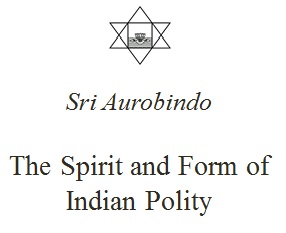
In Part 1, we made a preliminary foray into the study of Parliamentary Democracy in the Indian context. In this article, we make a brief survey of the political principle in Ancient Greece and India. These are the principle themes in this series :
1. A brief foray into parliamentary democracy in India
2. Observations from Ancient Democracies
3. Characteristics of Indian Polity (continued)
4. Psychological roots of the Modern Democratic system
5. The Parliamentary system in India
6. The Indian Parliament – in Practice
7. The Problem of the Party System
Democracy in Ancient Athens
We start with a story from Plato’s Republic. Although it is a simple story, it has profound political and philosophical implications. Plato wrote it as a thought-experiment, seeking to determine if humans naturally take the path of justice or injustice. The story in full is available here, but the key event is that a shepherd accidentally discovers a ring of invisibility. One may recall here the famous movie Lord of the Rings, based on Tolkien’s book – this in turn draws from Plato’s tale. In The Republic, one of the questions Plato sets forth is – Does it pay to be Just? What is Justice? How would a man behave should he possess the power of invisibility that such a ring gives? How would two such men behave?
“Suppose now that there were two such magic rings, and the just put on one of them and the un
just the other; no man can be imagined to be of such an iron nature that he would stand fast in justice. No man would keep his hands off what was not his own when he could safely take what he liked out of the market, or go into houses and lie with any one at his pleasure, or kill or release from prison whom he would, and in all respects be like a God among men.
:
If you could imagine any one obtaining this power of becoming invisible, and never doing any wrong or touching what was another’s, he would be thought by the lookers-on to be a most wretched idiot, although they would praise him to one another’s faces, and keep up appearances with one another from a fear that they too might suffer injustice.” 1
Invisibility gives secrecy, and secrecy is a form of invisibility. Any individual or group that is bestowed power with even a hint of this secrecy will, ‘naturally’, as Plato suggests, misuse it. With greater secrecy comes greater abuse of power. The ring of invisibility is allegorical, but in practice the abuse of (political) power is clearly felt by people of almost all nations. We may understand, or at the least appreciate what the ‘Right to Information‘ Bill represents in our fledgling democracy – it seeks to reduce the invisibility, and increase transparency and is seen as so great a threat to the ring-holders, that it is met with violent opposition and hostility.
The Athenian Council
Another interesting feature of Athenian democracy was the composition of the Council and the method of selection. The Council consisted of 500 members who were neither selected nor elected; they were chosen by lottery. They functioned for one year only with the provision that any individual could be a member of the Council only twice. In this way, the number of participants over the years in the Assembly was large. What were the reasons behind this mode of selection? It was based on two assumptions. Firstly, the greater the number of participants in governance, the more it helped in creating a democratic society. Secondly, a legislator who has assumed responsibility during his one year tenure, would be more understanding and careful in his criticisms and demands – in other words more responsible. The Athenians were clear that a democratic society demands a sense of responsibility from its citizens. It is evident that the Athenians had a sound and fine understanding of democratic principles.
Democracy in Ancient India
Similarly regarding the practice of Democracy in ancient Indian polity, we shall note some of the striking features. The evolution of the ancient political system in India started from the unit of the village in Vedic times and moved later to the large kingdoms; in this process, it threw up certain very striking peculiarities which owing to the unique mentality of the race fixed themselves and became prominent and permanent characteristics and gave a different and unique stamp to the political, economic and social factors of Indian civilisation. It is important that we identify those characteristics for they can be signposts when we set out in search of a new political system for India.
The first characteristic
The religious and spiritual inclination has been predominant from the earliest times of Indian civilisation and has been one of the striking characteristics of the Indian people. Sri Aurobindo commented that this
brought about at the top of the social system the growth of the Brahmin order, priests, scholars, legists, and repositories of the sacred lore of the Vedas. 2
This development was not unique to India but it was given an unequalled permanence and supreme importance in India. And in fact, along these lines:
In other countries with a less complex mentality this predominance might have resulted in a theocracy: but the Brahmins in spite of their ever-increasing and predominant authority did not and could not usurp in India the political power. As sacrosanct priests and legists and spiritual preceptors of the monarch and the people there is no doubt that they exercised a very considerable influence, but the real or active political power remained with the king, the Kshatriya aristocracy and the commons. 3
In other words, despite the strong religious leaning of the Indian people, a theocracy and theocratic rule is completely foreign to the Indian mentality. There has never been, and will likely never be a theocracy in India.
The second characteristic
Given this religio-spiritual inclination it was natural that the greatest reverence was reserved for the spiritual man. In ancient India he was known as the Rishi; he was the man of a higher spiritual experience and knowledge. But what did the Rishi have anything at all to do with people, politics or policy? Sri Aurobindo comments:
“A peculiar figure for some time was the Rishi, the man of a higher spiritual experience and knowledge, born in any of the classes, but exercising an authority by his spiritual personality over all, revered and consulted by the king of whom he was sometimes the religious preceptor and in the then fluid state of social evolution able alone to exercise an important role in evolving new basic ideas and effecting direct and immediate changes of the socio-religious ideas and customs of the people. It was a marked feature of the Indian mind that it sought to attach a spiritual meaning and a religious sanction to all, even to the most external social and political circumstances of its life, imposing on all classes and functions an ideal, not except incidentally of rights and powers, but of duties, a rule of their action and an ideal way and temperament, character, spirit in the action, a dharma with a spiritual significance. It was the work of the Rishi to put this stamp enduringly on the national mind, to prolong and perpetuate it, to discover and interpret the ideal law and its practical meaning, to cast the life of the people into the well-shaped ideals and significant forms of a civilisation founded on the spiritual and religious sense.” 4
And even in later days, right till modern times, this original character is still exercising its influence.
The third characteristic
Like in most other countries of the ancient world, the king was at the head of political power. But there were substantial differences, as Sri Aurobindo reveals.
“Indian monarchy was not, in spite of a certain sanctity and great authority conceded to the regal position and the personality of the king as the representative of the divine Power and the guardian of the Dharma, in any way a personal despotism or an absolutist autocracy: it had no resemblance to the ancient Persian monarchy or the monarchies of western and central Asia or the Roman imperial government or later European autocracies: it was of an altogether different type from the system of the Pathan or the Mogul emperors. The Indian king exercised supreme administrative and judicial power, was in possession of all the military forces of the kingdom and with his Council alone responsible for peace and war and he had too a general supervision and control over the good order and welfare of the life of the community, but his power was not personal and it was besides hedged in by safeguards against abuse and encroachment and limited by the liberties and powers of other public authorities and interests who were, so to speak, lesser co-partners with him in the exercise of sovereignty and administrative legislation and control. He was in fact a limited or constitutional monarch, although the machinery by which the constitution was maintained and the limitation effected differed from the kind familiar in European history; and even the continuance of his rule was far more dependent than that of mediaeval European kings on the continued will and assent of the people.” 5
We have seen the three defining characteristics of Indian Polity, but it is as yet an incomplete picture. For we may still ask – who, or what was greater than the King? We will turn to this question in Part 3 of this series.
(series edited by Uday Arya)
Other articles in this series
Part 1 | Part 2 | Part 3 | Part 4 | Part 5 | Part 6 | Part 7
“All political ideals must have relation to the temperament and past history of the race.” – Sri Aurobindo
Notes & References






